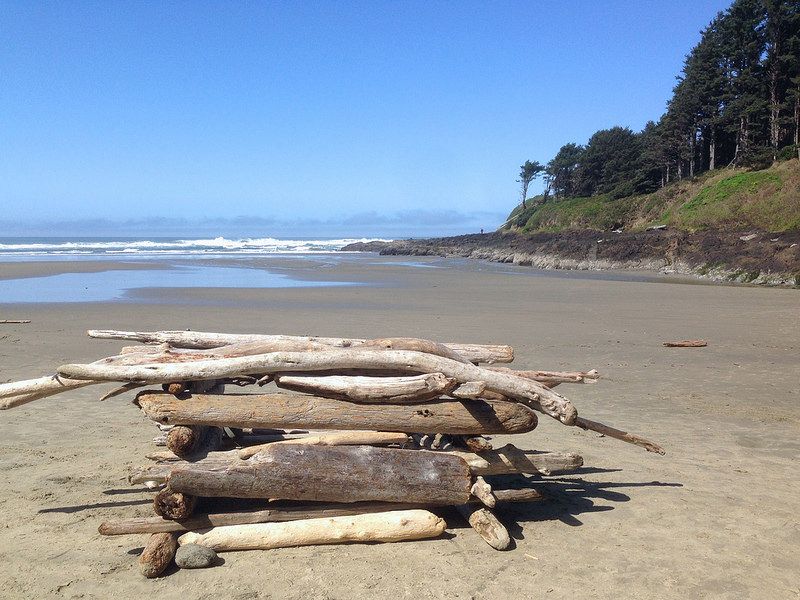Thinking of Purchasing Property To Rent On AirB&B Or Similar? What To Know.
(Cover photo via Flickr/Christy Bright - VRBO Rental in Florida)
Most people have, by now, have either used or heard their friends extol the virtues of sites like Air B&B, VRBO, HomeAway, FlipKey, and similar others that let hosts rent out part or all of their properties to vacationing strangers who are registered with the website. It’s a hugely popular arrangement, one where the guests save money and the hosts can collect anything from pocket spending money to their entire mortgage payment. For instance, Air BnB, the most popular vacation sharing site, has 50 million users. The site also boasts 640,000 hosts that rent their properties - each making an average of $7,350 per year in the process.
(Photo of an AirBnB listing in Kent, UK via Flickr/UserVallGal)
One of the major considerations in renting out your property is demand. Luckily, us here on Cape Ann and the North Shore live in an area that is frequented by tourists in the summer, so the potential for getting income from incoming guests here for Gloucester and Rockport beaches is a huge positive! However, deciding to rent your property on one of these sites requires a lot of forethought, and hard work. We’ll take you some of the positives and negatives, as well as the financial advantages, of choosing a to host short term rentals on your property.
Is It Legal?
Before going far in researching whether to list your spare room or property on a short-term rental site or making plans to buy a property to rent, it’s imperative to learn the legality of your plans. Make sure to check not only with your local government, but also any homeowner’s, neighborhood, or condo association that may have bylaws you must adhere to governing the length of guests or any subletting arrangements, as well as zoning restrictions. While there are many active AirBnB listings in Gloucester, make sure you understand what laws may restrict you or your guests - and keep in mind that future laws could be passed governing the use of short term sites in our area, as laws catch up with technology. Lastly, it’s smart to find out in advance if you must include local lodging taxes in your listings.
Is It Financially Feasible?
The current rule of thumb for mortgage professionals is that regarding the purchase of a single family home, any sort of rental income is not included in the calculation - meaning you may not qualify for a higher mortgage amount solely because you plan on supplementing your own income with AirBnb through renting out an extra bedroom or basement studio. Also, in multi-family units, most lenders will want a long-term view of the possible rental income, if there is no lease going forward in place for any of the units. Fannie Mae, for instance, has regulations on financing “condotels” - buildings in resort areas that have a high percentage of condominiums rented out for short-term periods.
However, if you can afford your intended home on your own, but want to subsidize part of your mortgage with short term rentals, you’re in a good spot! It’s a good idea to look at nearby rentals to get an idea of what you could charge per night, subtract taxes and website listing fees, and multiply that by the amount of nights you think you can, or want, to rent your intended property or spare room. Then, go to our handy mortgage calculator to find the ballpark monthly payment for the property, and subtract what your estimated income would be. Make sure to add in the standard 20% down payment in your calculations.
(Photo via Flickr/Alan Levine)
It’s also extremely important to ensure you have adequate homeowner’s or umbrella insurance in place, as well - and that any additional policy premiums are added into the overall calculations for what you’d need to charge. Be sure to call your homeowner’s insurance company to discuss liability coverage for short-term renters. After a recent tragedy in which a guest died on a host’s property due to the failure of a rope swing tied to a dead tree limb, Airbnb recently began offering free, automatic coverage for liability against claims up to $1 million. However, you must do due diligence and make sure there aren’t any gaps in coverage between your coverage and AirBnB’s offering, and if you’re using another site, check to see if they offer similar coverage.
Is It A Job You Want?
Although rental income can be seen as “passive” income, there is a lot that goes into renting your space out - it’s a true business, and requires a lot of labor and organization. For instance, hosts must maintain their booking schedules for accuracy, take care of incoming reservation requests, and screen potential incoming guests. It’s not like you can call in sick from hosting duties, when it’s in your own home.
Hosts must also clean and replace the linens and tidy the rooms between each guest - which can average an hour or two per room rented out. This isn’t easy work, and it requires a lot of manual labor and attention to detail. However, there is always the possibility of hiring a cleaning service if it makes sense for your budget.
What If Something Goes Wrong?
There have been a lot of AirBnB disaster stories in the papers, for both hosts and guests. Hosts have had the contents of their homes stolen, or been unwitting hosts to wild parties or even drugs in their home. While most websites offer up solutions for conflicts, it can be too little, too late for some of the hosts who ran into issues or had prized property stolen or broken. It’s a good idea to put your valuables in a hidden safe, or safe deposit box, when guests are in your home.
While the short term rental horror stories are clearly rare and the majority of guests are well-behaved and polite - some hosts report no issues in many hundreds of rentals - you should have a contingency plan in place to deal with an emergency or issue that arises. Make sure you carefully read the terms and conditions of all the short term rental sites you are considering listing your property with, and understand what to do in the event of an emergency or damages to your home or vacation rental. It’s a good idea to reasearch the claims process before a loss occurs, so you’re not caught off-guard or frustrated.
Even though there are a lot of things to consider before renting on AirBnB, VRBO, Homeaway, or other similar sites, there are millions of successful hosts across the globe who find it an enjoyable and interesting way to make money using their own home. If you’re considering purchasing a property with an eye towards future rentals, call Patty Knaggs today!
.png)
.png)
.png)
.png)

